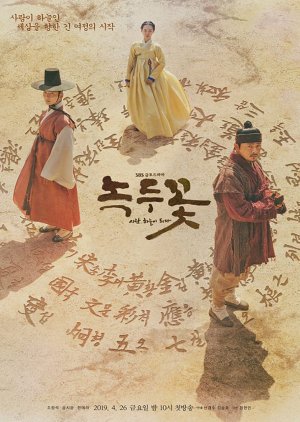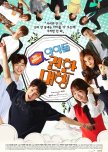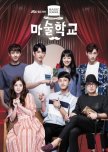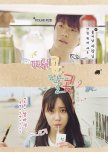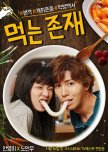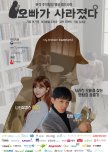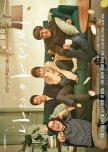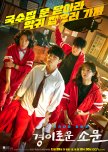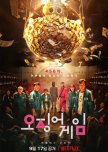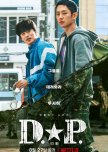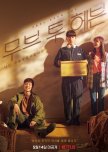La révolte des paysans qui fit entrer le Japon à Joseon.
J’ai adoré ce drama de bout en bout !! L’histoire, la psychologie des personnages, l’interprétation, la mise en scène et la réalisation, la musique, tout est excellent ! On voit que la production avait du soutien, ils y ont vraiment mis le paquet ! Il y a du monde sur les champs de bataille, la reconstitution est soignée, très crédible ! Si on s’intéresse à la Corée et à son histoire, ce drama est passionnant.La finesse, l’intelligence de l’écriture du scénario, des dialogues, de la conception des personnages est admirable. Pas de manichéisme ici, seulement l’humain, dans toute sa complexité. Pas de personnages héroïques, mais des êtres pleins de contradictions, que les circonstances poussent dans leurs retranchements, qui cherchent leur voie. La peur et le courage, la générosité et la cruauté peuvent alternativement se partager leur cœur. Le père par exemple, qui n’a qu’une idée en tête : faire de son fils un ministre, quels que soient les moyens à utiliser, n’est pas l’être noir et démoniaque qu’on pourrait croire, mais il aime ses fils, sa famille, et si son côté arriviste et matérialiste lui rendent incompréhensible leur évolution, cette incompréhension le rend en quelque sorte touchant ! Le personnage qui m’a le plus frappée, c’est Baek Yi Hyun,( Yoon Si Yoon) qui est au départ un fils de famille au cœur généreux, mais qui, confronté à une situation terrible et injuste va peu à peu s’enfoncer dans une dérive effrayante. Son frère, Baek Yi Kang, (Cho Jeung Seok)véritable brute sans âme au début aux ordres de son père, va suivre le chemin inverse, mais jamais rien ne séparera vraiment les deux frères, leur profonde affection mutuelle triomphera de tout jusqu’à une conclusion inattendue et tragique. Song Ja In, (An Hye Ri), fille du chef des marchands, cherche à faire fructifier l’affaire familiale et à protéger les privilèges de la caste marchande, et elle va naviguer entre cette démarche et son attirance pour Yi Kang, qui va l’entraîner à faire des choix difficiles. Les personnages restent toujours eux-mêmes à travers leur évolution. Il
Il y a une foule de personnages secondaires, mais qui ont tous un rôle important, assurant une construction solide autour des principaux héros de l’histoire.
Au niveau interprétation, elle est parfaite. Cependant un (tout petit)bémol : Yoon Si Yoon m’a paru un peu faible par rapport au rôle écrasant qu’il interprète. Il faudra que je le voie dans autre chose. Les autres sont plus qu’excellents, mention spéciale à Cho Jeung Seok et Choi Moon Sung, le Général… Les dialogues sont percutants, forts, intelligents, non dénués d’humour.
J’ai mis10(masterpiece) t, et je ne crois pas que j’en enlèverai quand je le reverrai, comme parfois ça m’arrive !
Cet avis était-il utile?

Cette critique peut contenir des spoilers
Fight for human rights. A story written with the blood of latest Joseon history. Highly valuable.
Definitely worthwile! "Nokdu Flower" offers a historically remarkable epic with a strong performance. The KDrama excels sort of. It almost seems as if the entire team was all too aware of the ambitious challenge to adequately capturing this short but crucial sequence of Korean history.In the second half of the 19th century, exploitation, famine, a corrupt, incompetent government and weak kings had eroded almost all belief in the existing system, in aristocracy and administration. Then there was the opening of the country to world politics and trades, for which the corrupt Joseon also proved to be profitable. In this historical KDrama it's not so much about the political intrigues around the palace, but about the landowners, administrative offices and Yangban in the provinces as well as the rebellion of the desperate rural people, who simply can't take it anymore.
The struggle for democracy in Korean history, like elsewhere in the world, has been quite bloody. That was last in May 1980 in Gwangju, when the democratic aspirations of the people were brutally crushed by the military. This was so during the student independence movement in 1929 in the fight against Japanese oppression. And that happened in connection with the Donghak movement, too, which had caused quite a stir throughout the country between 1860 and 1894. "Nokdu Flower" is deliberately very close to the front lines of those uprisings for democratic reforms, which then had been for the first time organized on this scale. This forms the perfect background for dramatically intertwined relationship dynamics of two half-brothers, (whose father is one of the particularly exploitative provincial officials who bleed the people dry), as well as the daughter of a merchant, who is used to deal with anybody, even the Japanese, for high profit.
The road to democracy on the Korean Peninsula is definitely rocky. To this day, the reactionary forces are still strong. "Nokdu Flower", however, represents a powerful, unforgettable symbol for the spirited struggle for freedom. The Donghak movement is often seen as the first patriotic Korean movement, since it was also about counteracting the increasing e. g. Japanese influence. But more than a patriotic struggle, initially the Donghak movement was actually about an idea that is bigger than family of origin or nation: It's about basic human rights. (An idea that, not too long before that, had also stirred up the European continent)
Matter follows spirit. And this spirit was shaken up in the rural population of Joseon by a new religious movement: Choe Je-u (1824–1864) created a new faith in 1860: Donghak, which roughly means "Eastern Wisdom". Drawing from Confucianism, Buddhism, Taoism and Shamanism, it sees the divine spirit at work in human beings - in ALL human beings, without distinguishing between class or gender. Additionally, it sees the world as moving in cycles - with a whole new world just waiting ahead.
Nevertheless, it is blood that paves the path to a new era. Eventually, the results of the first Donghak peasant rebellion included a treaty. The "Gabo Reform" recognized the new religion, and among other things, the lowest classes were freed, widows were granted the right to remarry, and penalties for corruption and abuse of office were introduced. Unfortunately, there followed a second peasant rebellion...
This is a story written with the blood of latest Joseon history, sort of.
Overall, a highly valuable production.
--------------- BY THE WAY... ----------------------
...the traditional Korean national dish BIBIMBAP is closely linked to Jeonju and to the Donghak uprising. The heart of the rebellion was in Jeolla province with Joenju being the provincial capital. Among farmers who did not have the time to prepare countless side dishes, it was common to simply mix whatever there was with rice and spices. This food proved its worth, especially when it came to feeding the rebels in their brave fight for new values and a more just future.
... the TITLE TRACK is actually a popular folk song that goes straight back to the peasant uprising. "Nokdu Flower" actually means 'blossom of the mung beans', but here it refers to the nickname of Jeon Bong-jun, leader of the peasant rebellion.
"Bird, bird, blue bird,
bird, bird, blue bird,
Don't sit in the mung bean fields.
When the blossom falls
the farmer goes to cry.
Bird, bird, blue bird,
Jeonju Gobu Nokdu bird,
why don't you fly away
The pines and bamboos are green.
We thought it was summer
yet it's bitterly cold and snowy."
The blue bird refers to the Japanese - they shouldn´t have any business in Joseon and should go away. Joenju and Gobu are legendary places of the uprising. Nokdu refers to Jeon Bong-jun´s nickname and the riot. However, Nokdu, the mung bean, also refers to an important agricultural product and food. Falling blossoms indicate a bad harvest. The 'summer' stands for the first uprising, the 'cold winter' for the second. The song was probably born during the execution of the leader Jeon Bong-jun and has since become a nationwide folk song in several different versions.
Cet avis était-il utile?

[This is my first 10/10 rating; though I tried to find reasons to rate it half a point less, there were none whatsoever.]
A saeguk outside the confines of the castle and a fairytale-like setting and focuses on the common-person's fight for rights and equality? I did not realize I needed that until I watched this. A drama that does not beat around the bush and jumps straight into action? I did not realize I needed that either.
The plot is well-executed; it moves forward without losing steam and stays true to its story line and characters. Since it was based on true historical events, heartbreak and tragedies were inevitable. I appreciate, however, that it was not entirely based on real people - that is, the three main leads we have, including their families and friends, are fictional in an otherwise non-fictional historical setting. (I cannot comment on the accuracy of the historical events as I am not well-versed in Korean history, yet this compelled me to search about the Donghak movement and Japanese takeover of Joseon. I can say I am more enlightened than before, however.) The lighter, funny scenes were never out-of-place as they always centered around the heartwarming friendships between the characters. Side characters had their own story which prevented their screen-time from feeling unnecessary; even those you might be least invested in underwent growth that justified the writer's choice to include them apart from the otherwise obvious reasons. It should be noted, there were some shifts in plot that made me dread that this drama would go south, that it was headed beyond what was meant to be the conclusion, but that never happened; the plot proved itself to be excellent, and the characters served to ground and consolidate the narrative.
Now, it is time to expand more on the characters: their growth and changes were interwoven with the struggle they, willingly or unwillingly, became a part of. To be able to see many characters of varying backgrounds coming to terms with their identities, or altering them at whim, was extremely gratifying. Their decisions simply made sense, in light of their circumstances and personal convictions. The writer also drew many parallels while crafting characters - the parallels between the brothers, with the titles assigned to them that they wanted to break free from; the parallel between a teacher and a student, with their attempt to rise from their ugly decisions; the parallel between two parties who wanted to save their country, with one man joining hands with the enemy and the other party firmly resisting. And then these parallels evolved beautifully into a juxtaposition. Overall, it was a thought-provoking angle the writer took.
You might think I am being too generous, but I do have a tiny complaint about flashbacks in one or two episodes, since they felt needless, but what's a k-drama without those, eh? I have learned to take them as a necessary part of a k-drama recipe, so I am not counting it in this time around. (I guess I AM being a little generous.)
And need I mention how amazing the actors were, from the support to the main? Moo Seoung Choi was an excellent casting choice for Jeon Bong Jeon; the poise and leadership that oozed out of him stunned me, not to mention the sense of humour he possessed. Han Ye Ri is a subtle actress, perfect to portray Lady Song - calm, collected, sharp. Yoon Shi Yoon has a way with expressions, and they were more than suitable for a character like Yi Hyun. Finally, Jo Jung Sok made Yi Kang a lovable character who you wanted to root for till the end.
Loved the OSTs; the one by FORESTELLA often plays in my head. The BGM was not outstanding, but it complemented a good deal of the show. I especially enjoyed the rock music whenever action scenes came in. Adds to the excitement and just how cool the characters look!
I think this has great re-watch value. For one, it never drags, and the characters are so multi-layered, you want to come back and appreciate them. Despite knowing the plot, you might want to catch up on a few details that you may have missed, and certain impressive progressions.
Cet avis était-il utile?

The story centers around three main characters, brothers Baek Yi Kang and Baek Yi Hyun, and merchant Lady Song, and how their lives are all changed by the Donghak Peasant Revolution. Their relationship with each other isn't a traditional love triangle, but instead, it's more about how their roles directly or indirectly affect each other, rather than a traditional rivalry, which was a much more interesting dynamic to watch. I don't want to give anything away by saying too much, but they are each so good in their roles and how they relate to and interact with each other, that they didn't need a cliché romance plot to keep me engaged. Han Ye Ri as composed and calculating Song Ja In is formidable in her role, and I loved watching her hold her own in a mainly male dominant cast. I already mentioned that Jo Jung Suk is a favorite K-actor of mine, and he does display some of his usual charms as Baek Yi Kang, but it's nice to know that even with romance playing such a minor part in the story, he is still so good! However, surprisingly my favorite of the three characters is Yoon Shi Yoon as Baek Yi Hyun. His range in this drama is amazing and award-worthy (he's really come a long way from the king of baking lol), and his relationship with his brother is the true heart of this story. I can't imagine a better possible pairing, Junk Suk and Ye Ri had great chemistry, but it's Junk Suk and Shi Yoon that got me right in the feels.
I mentioned the three leads as the main branches of this plot but the reality is that every single character in this drama is important and well played. Choi Moo Sung may have the biggest shoes to fill as Jeon Bong Jun, but even the most minor characters end up being major parts of the story, and I loved watching how all the characters and their allegiances and relationships changed with each episode. The real history makes a lot of this story predetermined but it's the individual characters that keep the story unpredictable and exciting. I wish I could name every character I loved but there are just way too many. This really is a perfect cast all around, and I love that there's not always clear villains or heroes, which keeps things from getting too predictable.
That leads me to the writing, which is truly amazing. Yes, the beginning episodes take their time setting up who everyone is, the unfairness of ancient Joseon, and what's about to happen, but before I knew it I was totally addicted and wrapped up in the revolution. I also liked how historical moments were noted to make them clear but without distracting from the story. I appreciated the details in even the side plots that made me care more and made this turn of the century Joseon world feel more real. This is the kind of story that you can definitely watch again, and maybe catch things that you missed the first time. I can see myself watching this again, now knowing more about what really happened, although knowing how it ends may make some scenes a little less exciting.
It's hard to hate a soundtrack that takes a traditional song and plays off of it beautifully. I liked the rest of the soundtrack as well and thought the music was always well placed, but some of the songs were too forgettable for me to warrant a perfect score for music. The music definitely enhanced the mood, especially during battle scenes.
Overall, this drama is a practically perfect sageuk. It's much deeper than the usual fighting over status, family betrayals, corrupt politics, and ill-fated love story tropes that make up most dramas in this genre (although sometimes I love those too). In Nokdu Flower I loved the themes of fighting for equality, tradition vs change, struggling with identity/self-determination, figuring out what is really important in life and what it truly means to win or lose, loyalty and betrayal, and all the conflicting faces of "patriotism"... I have no idea how accurate it was overall but I did actually learn a lot while watching without it feeling too preachy or feeling like the history channel. It's also not so heavy that the story becomes too depressing, even if you already know the history. There's a little bit of romance, great action/war scenes, even many funny moments... and the characters may be mostly fictional, but the way they brought life to the story felt hauntingly real. I loved how many of my favorite characters got the spotlight they deserved in the story too, and that the ending didn't feel rushed and really honored the history it was celebrating. Sure, the bluebird song will probably get stuck in your head for a while from watching, but it's definitely worth it.
Cet avis était-il utile?

The complexity of human nature
I will keep this short.Even though this series is not perfect in any way, it has something that I rarely see in other historical dramas. The core of it is the people. Not the palace, not the romance, not the schemes, just the people.
It is about ordinary, every day people fighting for their rights to live decently as human beings and not just survive. It is about the beauty and the cynicism of human nature. It is about change, about hardships, about love, about identity and so many other things.
It is a story about people like us, people that were full of strength and dreams, but also full of fear for tomorrow, people with their own weaknesses.
It is an important story that everyone should watch.
Even though the series is based on historical events, the liberties that the writer has taken are integrated into the main story in a great way.
Like it is mentioned in the series, "It's always been the weak who changed the world", and that is something that we all should remember.
Cet avis était-il utile?

Underrated Gem - Excellent Acting, Storytelling and Pacing. Rare drama about the Common Folks.
Such an underrated drama that is not recommended enough. It’s rare to find a serious saeguk/historical drama these days, and even rarer to find one that’s about the common people and not about the royal family. I can’t believe this drama is only rated a 8.2 at the time of this writing. It will be a rare 9.0 for me.I recommend this drama to you if you:
1. Like serious saeguks - not a rom-com.
2. Like dramas such as the more popular “Six Flying Dragons”.
3. Don’t like the pacing of “Six Flying Dragons” because it’s too slow but want a similar drama.
4. Like a big budget production with excellent acting, storytelling and realistic depiction of lives of the poor back in the 19th century
Acting - Top notch acting all around. There’s no weak link at all. The closest drama I can think of off the top of my head that I’ve seen such great acting from the youngest to the oldest, would be “Six Flying Dragons” and “Arthdal Chronicles”. This drama boasts a huge supporting cast, and you will recognize every single veteran actor if you are familiar with K-dramas. Each and everyone of them is amazing. Both Jo Jung Suk and Han Ye Ri were awarded Best Actor and Best Actress respectively in SBS Drama awards in 2019. Yoon Shi Yoon and Choi Moon Sung were nominated as well.
Yoon Shi Yoon - I want to single out my praises for Yoon Shi Yoon. He’s a surprise for me. I thought he was a young idol actor but realized he has many dramas under his belt. I remember also liking his acting in “You Raise Me Up” as well. His role as Baek Yi Hyun is so multilayered and he portrayed all these emotions so well. From being the young and naive scholar, to a shy lover, to being the emotionless and heartless Goblin and the tortured soul towards the end. I feel so bad for Yi Hyun. If only his teacher treated him right. Yoon Shi Yoon was fantastic. It’s too bad he did not win any awards.
Plot and Pacing - I picked this drama because it’s the story about the common folks. It’s not about the royal family fighting for the throne, or palace politics. Set during the Donghak Peasant Revolution, you know it’s going to be bloody and deadly. Throughout the drama, I was hopeful, saddened and horrified. To me, the pacing is a lot better than “Six Flying Dragons” which I thought had too much talking but not enough action. “The Nokfu Flower” moves at a moderate pace. Each supporting character is given sufficient screen time for me to get to know them and care for them, but not too much that they overshadow the main plot and the main characters.
Strong Female Characters - Love the strong female characters - fearless and badass merchant Song Ja In (FL), supportive and strong mother Yoo Wol (Baek Yi Kang’s mother), quiet but has an inner strength noblewoman Hwan Myung Shim, and killer and courageous sniper Beo Deul. Even the slightly annoying Chae Jung Shil (Yi Hyun’s mother) and Baek Yi Hwa (Yi Hyun’s sister) are strong characters. There isn’t anyone that’s naive and innocent, and wouldn’t fight back.
Production - High budget production with realistic battle scenes. They did not shy away in showing the cruelty of a revolution and no blood was wasted in the illustration of different wounds and battle scenes. I enjoy the realistic portrayal of regular lives - no fancy clothes, characters rarely have a clean face, torn clothes and messy hair, humble meals, sets and houses, and the use of natural light and candles. The drama might not have screenshot-worthy cinematography, but you bet you can envision how hard life was.
Character Development - Each of the three main characters changes (for better or worse) throughout the drama - Baek Yi Kang, Baek Yi Hyun and Song Ja In. Their experiences might not be the same, but you can see how much they have changed from when you saw them in the first episode, and compared it to the last episode. The change is not abrupt, but is developed nicely through their roles during the revolution.
Other Random Observations:
1. The Battle at Ugeumchi was very difficult to watch - it’s heartbreaking.
2. Beautiful and haunting opening theme song that sets the tone for the drama.
3. A few unexpected comedic scenes sprinkled here and there throughout the drama.
4. Slight romance - enough to keep this romance lover satisfied and tugged my heartstrings.
5. Same director as “Six Flying Dragons”, so you will notice some ‘Easter Eggs” and many actors/actresses that appear in both dramas.
6. ML’s Father - Worst Father of the Year
Completed: 1/17/2023
Cet avis était-il utile?

Nevertheless, the performances were top notch. Yoon Shi Yoo was really good as the bad guy and the transformation of his character from the innocent royal boy to a rougthless politician was amazing. The ending was good as well. Another thing that worked for the drama was the intensity of the story. As it was based on true events, the drama was even more powerful.
However, other than the parts of it that were boring, the romance had only a few good moments as well. I understand that they wanted to focus more on the tragedy and less on the love story. However, a milde romance just didn't feat well.
So, six out of ten.
Cet avis était-il utile?

Decent
It's a decent drama but a few things held it back. Inconsistent pacing was too obvious to ignore. The inconsistency carries on with the writing, sometimes they are strategic and smart while other times they throw themselves as a human shield, this is coming from the same army and the same leadership. I liked the leading cast they did a good job but I wish they put more effort into writing the character Yi Hyun. While the romance is a side thing, they could have given it more attention to let it mature and develop more appropriately or remove the romance altogether. Their encounters were scarce which made the high moments less impactful due to the lack of investment in their relationship. Anyway, the drama is one of the better historical ones.Cet avis était-il utile?

Cet avis était-il utile?

A perfect historical drama for beginners to the genre!
The Nokdu Flower is such an incredible drama- and the fact that it's based on real life is even more overwhelming. To think this really happened (I don't know how accurately as I wasn't obviously alive in 1894/1895) in real life, makes me even more emotional upon completion.The drama is so amazing, the choice of cast was great - surprising to see actors I know in this drama - but then again I rarely watch historical dramas so I can obviously say this. The OST, while at first I believed to be a little underwhelming, turned out to be one of my favourite themes in a long time. The rewatch-value is a little lower than what I had thought, but please bear in mind it's more than the usual, that's literally the only reason why.
The Nokdu Flower has really made me interested in reading about this real story into an even more depth - if that is even possible? I guess I'm going on Amazon after I write this review to check it out! While I do that, watch The Nokdu Flower! You will not regret it!
Cet avis était-il utile?

Cet avis était-il utile?

The series itself may be slow at times, even overly dramatic at some points and not as much action as one may wish from a drama or film, but I thoroughly enjoyed the story itself as it's most likely closer to reality and made directors really do their best to produce a proper story.
While the story was efficient and good, they did an even better job with the cast as many of the actors were a perfect fit for their position. I especially found Choi Moo Sung (when not?) and Jo Jung Suk excel at their roles.
Cet avis était-il utile?

 1
1